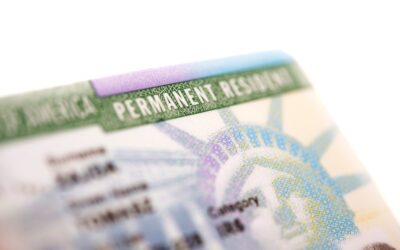With its corporate tax structure and e-Residency program, Estonia has become one of the most popular destinations to register a location-independent business in the past decade. Besides leveraging Estonia tax benefits, foreigners can access the European business environment and market while benefiting from hassle-free local legislation.
In this article, we explore if registering a business in Estonia is a good choice for US expats and digital nomads.
We cover:
- Estonia corporate tax and what it means for US taxpayers
- How to set up a company in Estonia as a foreigner
- Estonia E-Residency vs Tax Residency
- Is Estonia a good option for US Expats?
- Estonia tax benefits for US Digital Nomads
- Estonia Company vs US LLC for Non-Americans
- Non-Tax Benefits of Estonia for International Entrepreneurs
- Is Estonia right for you?
Estonia corporate tax and what it means for US taxpayers
The Estonia tax system is one of the most business-friendly systems in the world, particularly for startups.
Estonia has no corporate income tax on retained and reinvested profits. This means that there is 0% taxation on profits as long as the company keeps reinvesting it into further expansion. So, if the profit is not distributed, then it is tax-free in Estonia.
However, retained earnings can still be taxable in the US. If the Estonian company is over 50% owned by a US person, the IRS considers it a CFC (Controlled Foreign Corporation). The profit is then taxed at 10.5%, even if it is not distributed in form of dividends.
If the US person owns less than 50%, the company is not a CFC and zero corporate tax is due in the US. Be aware, if the company owns only passive investments or cash, it could be a PFIC (Passive Foreign Investment Company), which has punitive tax consequences in the US.
In Estonia, profits are only taxed when dividends are distributed to shareholders. The tax rate is relatively low, generally between 14 and 20%.
Thanks to the US-Estonia tax treaty, dividends from the Estonia company are considered qualified dividends. The US taxes those at 0%, 15%, or 20%, depending on the shareholder’s tax bracket.
A US shareholder would first pay tax on the dividend in Estonia and then receive a foreign tax credit in the US.
How to set up a company in Estonia as a foreigner
You can register a business in Estonia remotely as a non-Estonian person but you need to be an e-resident for that. The E-residency program enables you to sign Estonia business registration documents digitally, open bank accounts, and file taxes online.
If the business has multiple owners and they all wish to have online access to the company’s interactions with the government they should all apply for the e-Residency digital ID card.
Obtaining an e-Residency card starts with an online application that takes 20-30 minutes to fill out. However, since it is a government-issued document there is a 3-week processing time. Shipping it to a pickup location nearest to you may take another few weeks by diplomatic post.
Estonia E-Residency vs Tax Residency
Estonia e-residency is a digital ID card that enables someone to remotely open a business there.
However, e-residency in Estonia doesn’t make the person a legal resident for immigration purposes. It does not grant you permission to actually live in Estonia or the EU or receive any other resident benefits.
E-residency is also not the same as tax residency.
Being an Estonian e-resident does not make you a tax resident there – only the business is taxed there. It will not change your personal tax residency. (Keep in mind that the business might be taxed elsewhere as well, depending on the situation.)
A US taxpayer with Estonia e-residency won’t qualify for the Foreign Earned Income Exclusion (FEIE) as a bona fide resident of a foreign country if they don’t actually reside there.
If they are not an actual (physical) resident in Estonia or another country, they can only qualify for the FEIE through the Physical Presence Test, meaning spending at least 330 days in countries outside the US.
If the person running the Estonia company is a tax resident of another (third) country, they might have to pay tax there as well as an individual. Also, running the business from another country may create a permanent establishment of the business and therefore a tax obligation in that country.
Is Estonia a good option for US Expats?
As you can see, Estonia isn’t exactly a tax haven for US taxpayers but it still is a great option for Americans abroad. This is mostly due to the favorable tax treatment of dividends and its many European tax treaties.
Estonia is one of the few, if not the only, low-tax jurisdiction that has a tax treaty with the United States. This gives tax advantages to the dividends of Estonian companies.
Under the treaty, all dividends are qualified dividends (as opposed to ordinary dividends). The tax rate is 0%, 15%, or 20%, depending on the individual’s tax bracket. This is much lower than ordinary income tax rates.
Estonia also has tax treaties with many European countries. This can make it advantageous for US expats residing in Europe to set up a company in Estonia.
As always when it comes to tax, it’s nuanced. Each tax treaty has its specific stipulations on how the involved countries tax income. Consult with a tax and structuring expert to see which business setup makes the most sense for your situation.
Estonia tax benefits for US Digital Nomads
Does Estonia make sense for location-independent American entrepreneurs?
A US digital nomad can definitely benefit from registering a business in Estonia. In this case, they would have to file IRS Form 5471. It has different categories of filers, which dictate the information required. They would pay the lower US tax rate on qualified dividends from Estonia instead of income tax.
If they don’t spend much time in the United States, they should also consider other options.
They could have a US LLC taxed as an S Corporation, pay themselves a salary below the FEIE limit, and save income tax this way. Here, they would file a separate 1120S tax return and have W-2 payroll withholding while still qualifying for the foreign earned income exclusion.
Estonia Company vs US LLC for Non-Americans
For non-US digital nomads, a US LLC can also make sense. If they do not have Effectively Connected Income (ECI), a US LLC would be tax-free. With no office, warehouse, or employees, the LLC is not considered a US Trade or Business (USTB) and the income is tax-free.
Learn more about tax-free LLCs here.
A US LLC has other advantages:
- Low information requirements,
- Easy to open bank accounts in-person (Citi, Chase), plus some online options,
- And no taxes under most online business scenarios.
The LLC would have to file an information return (Form 5472) with the IRS.
One thing to be aware of is that the country where the LLC owner resides might still tax this income. If that residence country has a tax treaty with Estonia, then Estonia might be a better option.
Consult with an experienced tax adviser to see how Estonia dividends or other forms of income are taxed.
Non-Tax Benefits of Estonia for International Entrepreneurs
Besides Estonia tax benefits, there are other advantages. Estonia is a member of the European Union (EU) as well as the World Trade Organization (WTO) and other international bodies. These provide transparency, trustworthiness, and a solid regulatory framework for businesses.
Business founders can establish their company digitally and enter the EU Single Market. Under the Single Market Directive, e-commerce businesses and companies selling digital services now have free access to all EU markets.
Estonia is striving to enable online and fully remote management for business owners and digital nomads from anywhere in the world. Therefore, you can sign most documents in Estonia, from taxes to banking, online.
Because a large portion of Estonian society speaks English, all documents are also available in English.
Banks in Estonia are particularly customer-friendly and allow their customers to access their banking services from anywhere in the world. However, to open a traditional bank account the business needs to demonstrate strong ties to Estonia. For a vast majority of e-residents, the best option is to open a business account with a fintech (such as Wise, Payoneer, etc). Those are fully online and allow you to make and receive payments easily within the international banking system (SWIFT/BIC, IBAN).
And, unlike many other low or no-tax jurisdictions, Estonia is not blacklisted, which makes it easy for an Estonian company to get an account at various international payment institutions.
If you want to spend time in the country, Estonia offers a startup visa and a digital nomad visa.
The startup visa allows both founders and employees from non-EU countries to relocate to the country in order to develop their innovations there. The visa is granted for one year with the possibility of a 6-month extension. The fees are only 88 USD, with minimal personal funds of 2000 USD but no minimum required investment.
The terms of the digital nomad visa are similar but require a minimum income.
Is Estonia right for you?
Registering a company in Estonia is easy and can have tax benefits and other advantages.
You should definitely consider Estonia as a top option if you already have taxes due at the dividend level. Residents of Europe should also consider it as an option as it is not blacklisted like many Caribbean and worldwide low-tax/no-tax jurisdictions.
US taxpayers still need to be aware of the US tax implications. In some cases, a different setup, or having the Estonia company under a US corporation, can be more beneficial.
Consult with a tax and structuring expert to see which business setup makes the most sense for your situation.





